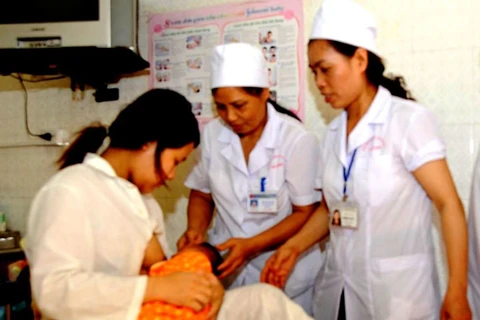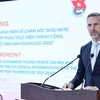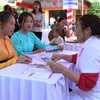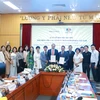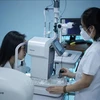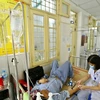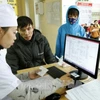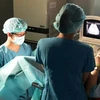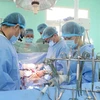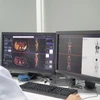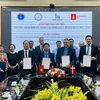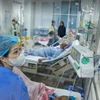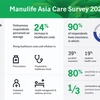 A healthcare provider at the National Obstetrics and Gynecology Hospital helps a mother breastfeed her baby within one hour after birth.(Source: VNA)
A healthcare provider at the National Obstetrics and Gynecology Hospital helps a mother breastfeed her baby within one hour after birth.(Source: VNA)Da Nang (VNA) - Domestic and international health experts gathered in the central City of Da Nang on August 17 to call on countries to promote early essential newborn care (EENC).
The event was organised by the World Health Organisation (WHO) and the United Nations Children’s Fund (UNICEF) themed “First embrace: benefitting another 4 million newborns”.
According to the WHO, a newborn baby dies every two minutes in the Western Pacific Region. A major contributor to newborn deaths is early separation from mothers after birth. These deaths can be prevented by practicing EENC after birth to save the lives of newborns and give them the best start.
The core of EENC is the First Embrace – immediate and thorough drying after birth followed by skin-to-skin contact, appropriately timed clamping and cutting of the umbilical cord and exclusive breastfeeding.
EENC can be performed in all birth settings. The approach has been applied in 16 nations across the world, with more than 30,000 medical workers receiving training at 2,522 medical institutions, and has benefited nearly four million newborns.
According to Nguyen Duc Vinh, Director of the Heath Ministry's Maternal and Child Health Department, Vietnam has made great efforts in performing EENC.
So far, the method has been implemented in all provinces and cities nationwide, with nearly 9,000 trained medical workers. Up to 78 percent of full-termed infants have skin-to-skin contact with their mothers, and are breastfed right after birth.
The “First Embrace” campaign was first launched in the Philippines in March, 2015. The campaign has been launched in eight nations, namely Cambodia, China, Laos, Mongolia, Papua New Guinea, the Philippines, the Solomon Islands and Vietnam.-VNA
VNA
